Reviews
The Devils of Loudun / Ken Russell’s the Devils
Ken Russell
UK, 1971
Credits
Review by David Carter
Posted on 06 October 2013
Source Euro Cult DVD
Related articles
Reviews:
The Devils by Adam
Categories 31 Days of Horror X
Ken Russell’s The Devils is discussed more frequently than it is seen. With good reason, considering it is regarded as one of the most controversial films in history, and as such has been available only in truncated forms — if at all — since its 1971 release. The film was banned and cut severely by several minutes to qualify for an X rating. Even with its most incendiary scenes removed, the film drew criticism for everything from its subject matter to its style. Vincent Canby’s review of the film called it “that most boring kind of Pop art,” evaluating Russell’s mise-en-scene as a worse offense than the film’s liberal sexuality and violence. Although the film’s reputation has grown somewhat in recent years, it remains largely unavailable on home video.
This is ironic considering the fate of the film’s protagonist, Father Urban Grandier. The film depicts his fall from grace within the Catholic Church and the city of Loudun due to a Kafkaesque nightmare of false accusations and political machinations. Grandier, in another commonality with regard to The Devils’ reputation, is largely responsible for his fate: he openly violates church law and defies the political union of the Church and the King. The Devils is similarly defiant in whole, and relishes in its scenes of transgressive sexuality and sadism.
The film is based on an allegedly true story of demonic possession in Loudun, France, in 1634, and is adapted from Aldous Huxley’s The Devils of Loudun and John Whiting’s play The Devils. Huxley’s book, which is best described as non-fiction horror, had the largest influence on Russell’s film, which closely conforms to the standards of the horror genre (many of Russell’s films, however, are not so neatly classified). There is an emphasis on graphic spectacle, a focus on aberrant psychological states, and the presence of the supernatural. Furthermore, there is evidence that Russell’s intent is to frighten the audience. This is established early in the film, with scenes of piles of plague victims lining the streets of Loudun, burning because there weren’t enough survivors to bury them all. Grandier’s life is also presented as a cautionary tale — a standard horror trope - albeit with a different perspective than most. The Devils is not a warning against Grandier’s sins of pride and lust, but rather a warning about what happens to those who challenge authority.
France was in a period of flux in the mid-17th century. Catholics and the Huguenots (French Protestants) had reached an uneasy truce of peaceful coexistence, but resentment remained on both sides. A microcosm of this arrangement could be found in the walled city of Loudun, where Catholic and Protestant alike lived in fear of the Black Death and the encroaching power of the alliance between Louis XIII and Cardinal Richelieu. Loudun’s governor had received a promise from the King that he would not have its fortifications removed, the standard practice for walled cities to prevent them from making a stand against the monarchy. The governor has passed away, however, leaving the priest of St. Peter’s, Father Grandier, in charge of Loudun. Grandier is popular with the common people but has drawn the ire of the aristocracy and his fellow priests for his lack of humility and clerical celibacy. The two unite against him after Grandier abandons the daughter of a noble he has impregnated and marries another girl. Grandier manages to anger the state by standing against Baron de Laubardemont, who has been ordered by the King to removed Loudun’s fortifications.
It is an altogether more innocent act that seals Grandier’s fate, however. He declines an invitation to become the confessor for the Ursuline nuns, citing the fact that he was too busy. Unbeknownst to him is that Sister Jeanne, the order’s Mother Superior, is in love with him. Jeanne’s fixation on Grandier is obsessive, and she’s given to hallucinating about him and becomes unable to distinguish fantasy from reality. Sister Jeanne is the break the Baron, the clergy, and the nobles have been looking for, and they use her heartbreak to coerce her into accusing Grandier of witchcraft. Her fellow Ursuline nuns follow suit, and soon Loudun becomes the talk of France for the convent of nuns possessed by demons and the mass exorcism that follows. Grandier, away in Paris to plead for Loudun, returns home to find his city aflame with paranoia and himself accused of witchcraft. Too proud to simply refute the charges, Grandier is forced to undergo torture and humiliation at the hands of his accusers and, ultimately, conviction and execution.
For a good portion of its running time, The Devils is a demonic possession film, but one that finds its villain not in the form of a supernatural devil but in the earthly powers of the Catholic Church. Russell makes it clear that it is not the entity itself that is evil but rather the individuals within it. From the ambitious Cardinal Richelieu to the demented witch hunter Father Barre, _The Devils_shows that certain individuals within the church used it for their own purposes. Russell, himself a Catholic, appears to be taking pains to distance church doctrine from church politics. In a particularly telling scene, Richelieu is shown in his home church, which is designed in a manner to resemble a cross between a modern office building and prison. Richelieu, Barre, and even Grandier have secular goals and each in turn is chastised for using their faith to further them.
The Devils breaks again from the standard mode of operation for demonic possession cinema in attribution of the cause of the Ursuline nuns’ condition. Both of the two most common cinematic reasons — actual supernatural possession and induced hysteria — are eschewed for a third option: fabrication. Sister Jeanne makes her initial accusation out of spite, knowing full well that what she is saying isn’t true. The remainder of the nuns are shown receiving direct permission from Father Barre to behave as if they are possessed, a role which, after living a cloistered life, the nuns throw themselves into completely. For the nuns, demonic possession is a blessing as it allows them to indulge in the forbidden fruit of the flesh; pleasures that, notably, their male counterparts have not been denying themselves.
The titular Devils are products of overactive imaginations and unchecked ambitions. The true horror in the film is in the political games in which Grandier finds himself trapped. Richelieu’s plot is as sinister as any nightmare and as inescapable as a serial killer’s most devious trap. Grandier will die regardless of whether or not he confesses; the word of Sister Jeanne was sufficient evidence of his evil. Even when she recants, Father Barre claims that her recantation is merely another of Grandier’s supernatural tricks and thus he is doubly damned. Grandier is inevitably bound for the stake, but the path to that end is designed to destroy his soul before his body is burned. Grandier is forced to watch as his church and his wife are taken away from him, the religion he’s devoted his life to is perverted, and the city he risked his life to protect turns its back on him. The proud Grandier is shaved and forced to stand trial in rags, then to ask forgiveness from those who have, in reality, wronged him. Grandier refuses to be broken, however, and in doing so gets a measure of revenge against his accusers.
The Devils’ graphic depictions of sexuality and sadism would have likely been censored in any era, but the film’s intentionally sacrilegious imagery made it unwelcome even after it was scrupulously edited. Scenes like the infamous “rape of Christ” scene are but spectacle, however, and only distract from the film’s potent — and terrifying — message. It is a warning against the Richelieus that are present in every age; men who would turn good into evil for their own ends. Richelieu, Barre, and Baron de Laubardemont are the true “devils” of the film, and their evil possesses all of Loudun, which allows itself to be used in exchange for eliminating a fictitious problem. Grandier’s dying words are both a recrimination and a warning for the people of Loudun: if none will stand against these devils, then all will find themselves on the stake eventually.
More 31 Days of Horror X
-
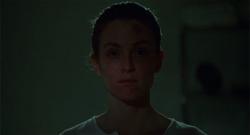
Safe
1995 -
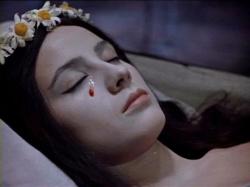
Viy
1967 -
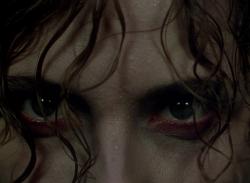
Black Narcissus
1947 -
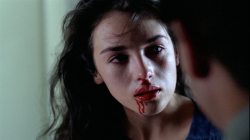
Possession
1981 -

Carrie
1976 -
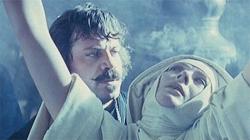
The Devils
1971 -
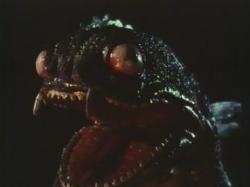
The Sea Serpent
1984 -
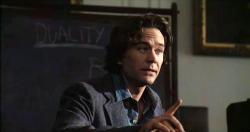
The Dark Half
1993 -
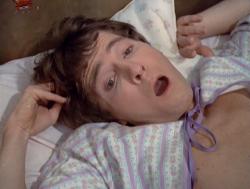
The Baby
1972 -
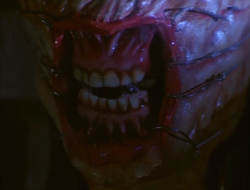
Hellraiser
1987 -
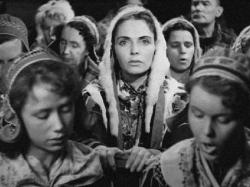
The White Reindeer
1952 -
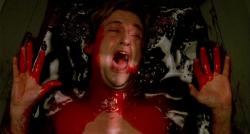
The Serpent and the Rainbow
1988 -
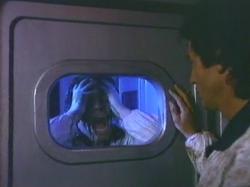
Endless Descent
1989 -
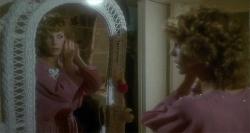
Prom Night
1980 -
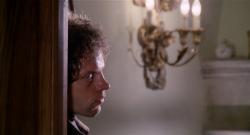
Night Train Murders
1975 -
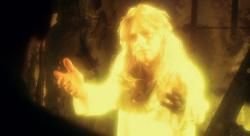
God Told Me To
1976 -
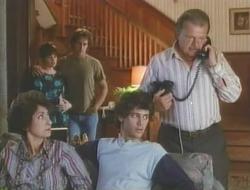
In a Child’s Name
1991 -
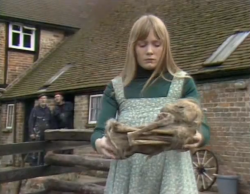
Beasts
1976 -
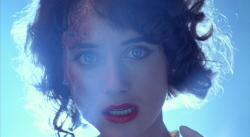
Prom Night II
1987 -
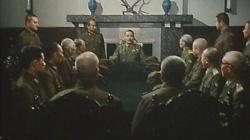
Men Behind the Sun
1986 -
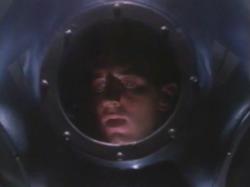
DeepStar Six
1989 -
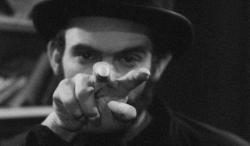
At Midnight I’ll Take Your Soul
1964 -
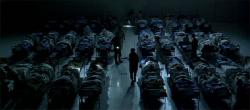
They Came Back
2004 -
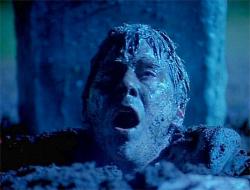
Buried Alive
1990 -
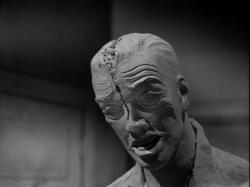
A Bucket of Blood
1959 -
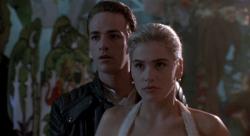
Buffy the Vampire Slayer
1992 -
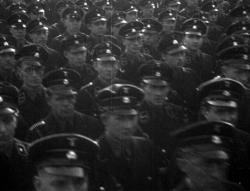
Night and Fog
1956 -

It Came From Beneath the Sea
1955 -
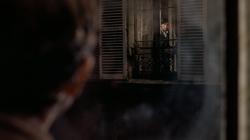
The Tenant
1976 -

Tokyo Gore Police
2008 -
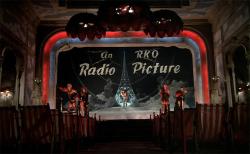
The Rocky Horror Picture Show
1975
We don’t do comments anymore, but you may contact us here or find us on Twitter or Facebook.



